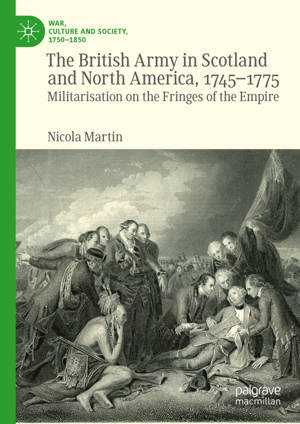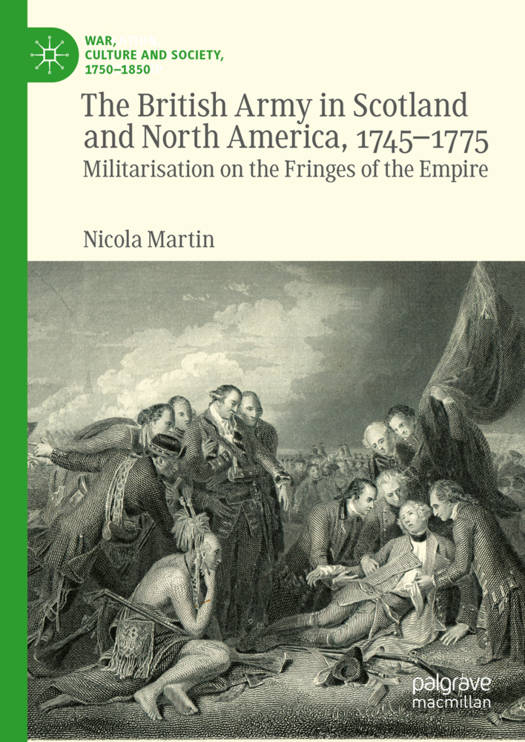
- Afhalen na 1 uur in een winkel met voorraad
- Gratis thuislevering in België vanaf € 30
- Ruim aanbod met 7 miljoen producten
- Afhalen na 1 uur in een winkel met voorraad
- Gratis thuislevering in België vanaf € 30
- Ruim aanbod met 7 miljoen producten
Zoeken
The British Army in Scotland and North America, 1745-1775
Militarisation on the Fringes of the Empire
Nicola Martin
€ 167,95
+ 335 punten
Omschrijving
This book examines militarisation in Scotland and North America from the Jacobite Uprising of 1745-1746 to the outbreak of the American Revolutionary War in 1775. Employing a transatlantic, case study approach, it investigates the overarching cultural frameworks, individual circumstances, and local conditions guiding the actions and understandings of British army officers as they waged war, pacified hostile peoples, and attempted to assimilate 'other' population groups within the British Empire. The process of militarisation fundamentally altered how officers viewed imperial populations and implemented empire on geographical fringes, leading to the development of a military-imperial mentality where the direct and indirect experiences of the army in Scotland were transferred and adapted to the challenges the army faced in North America. Centring the British army in the imperial crisis, this book widens our understanding of eighteenth-century British imperialism and demonstrates the material role military commanders, as important agents of empire, played in the coming of the American Revolution.
Specificaties
Betrokkenen
- Auteur(s):
- Uitgeverij:
Inhoud
- Aantal bladzijden:
- 289
- Taal:
- Engels
- Reeks:
Eigenschappen
- Productcode (EAN):
- 9783031892578
- Verschijningsdatum:
- 10/06/2025
- Uitvoering:
- Hardcover
- Formaat:
- Genaaid
- Afmetingen:
- 148 mm x 210 mm

Alleen bij Standaard Boekhandel
+ 335 punten op je klantenkaart van Standaard Boekhandel
Beoordelingen
We publiceren alleen reviews die voldoen aan de voorwaarden voor reviews. Bekijk onze voorwaarden voor reviews.











